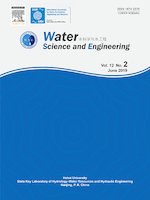
Water Science and Engineering
Scope & Guideline
Unveiling the Science Behind Water Engineering Excellence
Introduction
Aims and Scopes
- Hydraulic Engineering and Fluid Mechanics:
Focuses on the principles of fluid dynamics applied to water flow in various contexts, including rivers, dams, and urban water systems. This includes studies on hydraulic jumps, scour around foundations, and modeling of flow in complex environments. - Water Quality and Treatment Technologies:
Explores innovative methods and technologies for water purification and treatment, including photocatalysis, bioremediation, and advanced filtration techniques. Research in this area aims to enhance the efficacy of removing contaminants from water. - Water Resources Management and Hydrology:
Investigates the management of water resources, including hydrological modeling, groundwater management, and the impacts of climate change on water availability and quality. This area emphasizes sustainable practices and policies for water use. - Environmental Impact and Ecosystem Health:
Studies the effects of water management practices on ecosystems and biodiversity. Research includes monitoring water quality in urban rivers, assessing anthropogenic impacts, and evaluating the effectiveness of nature-based solutions. - Innovative Materials and Technologies:
Covers the development and application of new materials and technologies for water treatment and infrastructure resilience. This includes the use of nanomaterials, biogenic nanoparticles, and novel composite materials.
Trending and Emerging
- Climate Change Impacts on Water Systems:
There is a growing emphasis on understanding how climate change affects hydrology, water quality, and resource management. This trend is crucial as it informs adaptive strategies for resilience in water systems. - Integration of Smart Technologies and Big Data:
The incorporation of smart technologies, including big data analytics, IoT, and machine learning, is increasingly prevalent. This emerging scope aims to optimize water management and enhance predictive modeling capabilities. - Sustainable and Green Water Treatment Solutions:
Research is trending towards sustainable and eco-friendly treatment technologies, including bioremediation and the use of natural materials. This shift is driven by the need for environmentally responsible water management practices. - Interdisciplinary Approaches to Water Issues:
There is an increasing trend towards interdisciplinary research that combines hydrology, ecology, engineering, and social sciences. This approach aims to address complex water-related challenges holistically. - Application of Nanotechnology in Water Treatment:
The use of nanomaterials for water treatment and remediation is emerging as a significant theme, given their potential for efficient pollutant removal and the development of advanced catalytic processes.
Declining or Waning
- Traditional Water Supply and Distribution Systems:
Research on conventional water supply and distribution systems has decreased, possibly due to a shift towards more innovative and sustainable approaches to water management, such as decentralized systems and green infrastructure. - Historical Water Quality Assessments:
There appears to be a waning focus on historical assessments of water quality, as newer methodologies and technologies emerge that prioritize real-time monitoring and predictive modeling over retrospective studies. - Basic Hydrological Modeling:
Basic hydrological modeling studies have seen a reduction, likely because of the evolving complexity of water systems and the increasing use of advanced computational techniques that require more sophisticated models.
Similar Journals
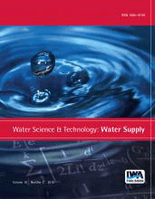
Water Supply
Advancing knowledge in water management.Water Supply is an esteemed journal published by IWA PUBLISHING that plays a pivotal role in the field of water science and technology. With an ISSN of 1606-9749 and an E-ISSN of 1607-0798, this journal has been a key resource for researchers and professionals since its inception in 2001. Now covering a wide range of topics until 2024, it is recognized for its impactful contributions, holding a Q2 ranking in the Environmental Science: Water Science and Technology category, and currently stands at rank #125 out of 261 in Scopus, reflecting its relevance and influence in the academic community. The journal aims to disseminate significant research findings and innovations in water supply management, ensuring that professionals and students are equipped with the latest knowledge and practices in the sector. Despite not being an open-access journal, Water Supply continues to attract high-quality submissions that enhance our understanding and preservation of vital water resources. For those invested in sustainable water practices, this journal is an invaluable tool for continued learning and advancement.

Journal of Applied Water Engineering and Research
Innovating Solutions for Sustainable Water ManagementJournal of Applied Water Engineering and Research is a dynamic platform dedicated to the advancement of knowledge in the field of water science and technology. Published by Taylor & Francis Ltd, this journal aims to bridge the gap between theoretical research and practical applications in water engineering, providing a crucial resource for researchers, practitioners, and policymakers. With an ISSN of 2324-9676 and an impressive ranking in the Q3 category for Water Science and Technology, it occupies a distinctive position within the scholarly community. The journal covers a wide spectrum of topics, including innovative water management strategies, sustainable practices, and the integration of technology in water resource management, thus contributing significantly to the discourse surrounding environmental sustainability. With publication years converging from 2013 to 2024, the Journal of Applied Water Engineering and Research continues to foster impactful research, enhancing our understanding and management of vital water resources.
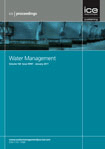
PROCEEDINGS OF THE INSTITUTION OF CIVIL ENGINEERS-WATER MANAGEMENT
Advancing Sustainable Solutions in Water ManagementPROCEEDINGS OF THE INSTITUTION OF CIVIL ENGINEERS-WATER MANAGEMENT is a prestigious journal published by Emerald Group Publishing Ltd, dedicated to advancing the field of water management within civil engineering. With an ISSN of 1741-7589 and an E-ISSN of 1751-7729, this journal delivers peer-reviewed research that spans the critical intersections of water science and technology, contributing valuable insights into sustainable water management practices. As evidenced by its ranking in the 2023 Scopus categories, where it holds the Q3 quartile in Water Science and Technology, and a respectable position among its peers, the journal remains a vital resource for researchers, professionals, and students in the field. Though it is not an open-access journal, it offers accessible subscription options that facilitate worldwide dissemination of knowledge, enhancing its role as a fundamental reference point for cutting-edge developments in water management. For those looking to publish or stay updated on the latest research trends, this journal serves as an essential platform for promoting innovation and sustainable practices in civil engineering and water resources management.
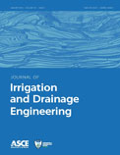
JOURNAL OF IRRIGATION AND DRAINAGE ENGINEERING
Connecting Experts to Tackle Global Water IssuesJOURNAL OF IRRIGATION AND DRAINAGE ENGINEERING, published by the ASCE - American Society of Civil Engineers, stands as a pivotal resource in the fields of irrigation and drainage engineering. With a rich publication history dating back to 1966 and continuing robustly through to 2024, this journal serves as a critical platform for disseminating innovative research and developments that contribute to effective water management practices. Catering to an audience of researchers, professionals, and students, it holds a notable impact factor within its categories, ranking Q2 in Agricultural and Biological Sciences (miscellaneous) and Q3 in both Civil and Structural Engineering and Water Science and Technology for 2023. This journal not only stimulates dialogue among experts but also addresses pressing global water challenges, promoting sustainable practices in resource management. Although it does not offer open access, the depth of its content and adherence to rigorous academic standards ensure it remains an essential citation for anyone involved in water resource engineering and the applied sciences surrounding agricultural efficiency.

Water Reuse
Elevating Water Science to Meet Tomorrow's Challenges.Water Reuse is a pioneering journal dedicated to advancing the field of water science and technology, particularly focusing on innovations in water recycling and reuse strategies. Published by IWA Publishing in the United Kingdom, this journal has quickly established itself as a vital resource for researchers, professionals, and students engaged in sustainable water management practices. With an impressive impact factor and a ranking that places it in the top quartile for both Water Science and Technology and Filtration and Separation, Water Reuse offers an open-access platform that fosters the dissemination of high-quality research. Since its inception in 2021, it has garnered attention for its commitment to addressing critical global challenges related to water scarcity and environmental sustainability. The journal provides a crucial forum for the exchange of knowledge and best practices, contributing significantly to the advancement of water reuse methodologies. By encouraging interdisciplinary collaboration and the publication of pioneering studies, Water Reuse is poised to play a central role in shaping the future of water management.
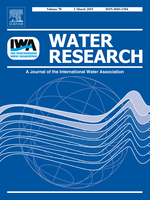
WATER RESEARCH
Advancing water science for a sustainable future.WATER RESEARCH, published by Pergamon-Elsevier Science Ltd, is a premier international journal dedicated to the advancement of knowledge in the interdisciplinary field of water science and technology. With a significant impact factor, WATER RESEARCH holds a distinguished position, consistently ranking in the top quartile (Q1) across multiple categories including Civil and Structural Engineering, Environmental Engineering, and Pollution. Established in 1967 and set to continue its legacy until at least 2024, this journal provides a vital platform for researchers and professionals to disseminate cutting-edge findings related to water sustainability, quality, and management. Although the journal follows a traditional access model, its commitment to disseminating impactful research ensures that it remains an essential resource for academia and industry alike. With a rigorous selection process, the journal includes articles that significantly contribute to the understanding and resolution of global water-related challenges, making it an invaluable asset for researchers, students, and practitioners engaged in this critical area of study.

WATER RESOURCES MANAGEMENT
Exploring the Frontiers of Water Science and EngineeringWATER RESOURCES MANAGEMENT is a prestigious journal published by SPRINGER, renowned for its contribution to the fields of Civil and Structural Engineering as well as Water Science and Technology. Operating since 1987, this journal has established itself as a vital resource for researchers, professionals, and students alike, boasting a remarkable impact factor and a Q1 designation in both relevant categories as of 2023. The journal is indexed in Scopus, achieving commendable ranks—34th in Environmental Science and 62nd in Civil and Structural Engineering, placing it in the top percentiles of its fields. Although it does not offer open access, WATER RESOURCES MANAGEMENT serves as a comprehensive platform for disseminating innovative research, discussions, and case studies that address the global challenges of water resource management. With a commitment to fostering knowledge and advancing the understanding of integrated water management solutions, this journal is indispensable for anyone engaged in these critical scientific domains.
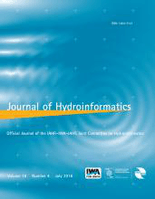
JOURNAL OF HYDROINFORMATICS
Empowering Research in Water Engineering and Sciences.JOURNAL OF HYDROINFORMATICS, published by IWA PUBLISHING in the United Kingdom, is a leading open access journal in the field of water-related sciences and engineering. Since its inception in 1999, it has evolved to become a pivotal platform for the dissemination of significant research and innovative findings, especially after adopting an open access model in 2021. The journal spans a broad scope, intersecting various disciplines such as atmospheric science, civil and structural engineering, geotechnical engineering, and water science and technology, with its 2023 rankings placing it impressively in the Q2 quartile across several categories. With an impact factor reflective of its esteemed position within the academic community and its reach underscored by its Scopus rankings, the JOURNAL OF HYDROINFORMATICS appeals to a diverse readership including researchers, professionals, and students dedicated to advancing knowledge in hydroinformatics and related fields. Whether you are seeking to publish your cutting-edge research or to stay informed on the latest developments, this journal serves as an indispensable resource.

Journal of Hydrology and Hydromechanics
Elevating the conversation on water dynamics and engineering.Journal of Hydrology and Hydromechanics, published by SCIENDO, is a prominent open access journal that has been disseminating crucial research findings in the fields of fluid flow, mechanical engineering, and water science since its inception in 1973. With its open access model established in 2009, the journal ensures that innovative research is available to a global audience, enhancing the visibility and impact of studies related to hydrological systems and their applications. The journal holds a commendable position within the academic community, reflected in its category quartiles, achieving Q2 rankings in 2023 across key areas such as Fluid Flow and Transfer Processes, Mechanical Engineering, and Water Science and Technology. Its Scopus rankings further highlight its relevance, placing it among the top journals in its categories. The Journal of Hydrology and Hydromechanics not only serves as a vital resource for researchers and professionals aiming to advance hydrological knowledge but also provides students with a wealth of information to better understand the complexities of water dynamics and associated engineering challenges.
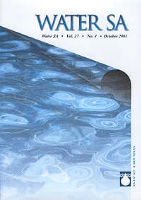
WATER SA
Driving impactful research in water science and technology.WATER SA, published by the WATER RESEARCH COMMISSION, serves as a pivotal platform for interdisciplinary research in the areas of water science and technology. With an ISSN of 0378-4738 and an E-ISSN of 1816-7950, this open-access journal has been committed to disseminating knowledge since 2005, ensuring that research is freely accessible to a global audience. As of 2023, it holds a Q3 ranking in several key categories including Applied Microbiology and Biotechnology, Management, Monitoring, Policy and Law, Waste Management and Disposal, and Water Science and Technology. These rankings reflect its significant contribution to these disciplines, particularly in South Africa where it is based. With a history dating back to 1976 and converging research efforts extending through 2024, WATER SA aims to illuminate pressing water-related challenges and foster innovative solutions through rigorous scientific inquiry. Researchers, professionals, and students interested in the sustainability and management of water resources will find its comprehensive portfolio essential for advancing their work and understanding in an increasingly critical field.